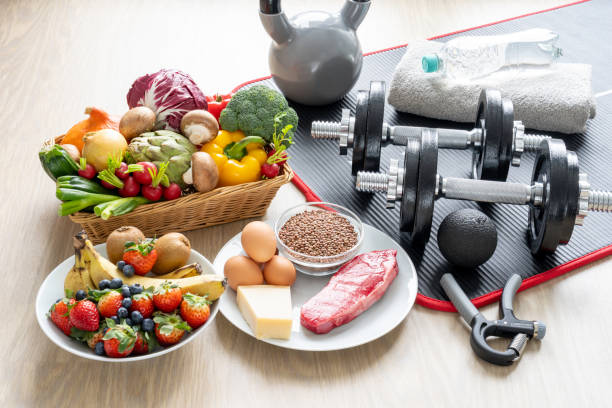If you have been exercising for quite some time now, then you probably know that nutrition has significant importance on your performance and physical results. You may be spending 5 hours a week at Bay Club but if you don’t have the right nutrition, all that hard work may not lead to results you’ve been aiming for.
Here’s how you can utilize the power of proper workout nutrition so you can perform, grow and recover faster than ever before.
Pre-Workout
1. Carbohydrates
Carbohydrates is often a topic of debate in the fitness world. Do you need them? Will they make you fat? How much should you be consuming? The questions are never-ending.
Well, the thing is, carbohydrates fuel your body so it can train at its best. But there are optimal carbs and the ones that just get stored in your body. You want every bit of carbs you eat to be used up as a fuel source or to replace lost glycogen.
What I would recommend is to consume 2 meals before training and both should have complex carbs like sweet potatoes and stone-rolled oats. Meal #1 will give you a couple of hours to digest the carbohydrates and ensure that your blood sugar and glycogen levels are sufficient prior to your workout. Meal #2 should be consumed an hour before you go to the gym. Time your training in a way that you don’t have a lot of food in your stomach.
2. Protein
The protein we want here is one that absorbs fat. Studies have found that consuming whey protein before your workout can give you better results than other kinds of protein. Whey protein contains high amounts of branched chain amino acids (BCAAs) such as leucine. Pre-workout protein intake also boosts resting energy expenditure by 6% on average for as long as 48 hours.
Those who are also doing strength training should supplement their protein with creatinine monohydrate of about 2-5 grams per day which will help you train more intensely and also draws water to the muscles for a fuller appearance.
3. Beta-Alanine
What beta-alanine does is help conserve muscular energy. Intramuscular acidosis (ATP) is a result of phosphagen and glycolytic systems creating byproducts like hydrogen ions and this leads to muscle fatigue if they are not cleared out fast enough from the body. The ions bind with pyruvate resulting in the production of lactic acid which affect skill, coordination and performance. Taking 4-5 grams of beta alanine can help decrease the production of hydrogen ion and increase muscle carnosine to aid in high intensity exercises.
During Your Workout
Most people only train for 60 to 90 minutes so they don’t really need extra fuel during workout as long as they meet their pre-workout needs. However, those who are considered depleted dieters can definitely benefit from additional fuel. In this case, supplementing with branched chain amino acids can increase amino acid levels in the blood to increase net protein synthesis. Those who train for long periods should also need additional fuel such as a cocktail of electrolytes, BCAAs, carbs and water.
Post-Workout
Protein
Your body will need protein after workout to help with tissue growth and repair. The recommended intake would depend on the activity and body size. Whey protein contains lots of BCAAs, is highly bio-available and digests fast. At least 20 grams of whey is needed for muscle recovery and repair.
Fast Carbs (Optional)
If you’ve had a rather hard workout, you may need fast carbs as your body’s supply may be low. Fast-acting carbs will correct blood sugar imbalance and replenish glycogen stores.
